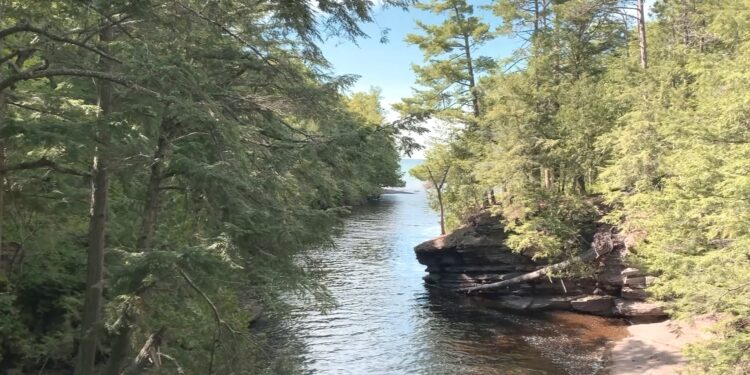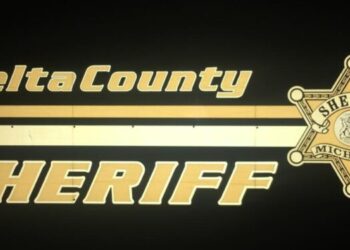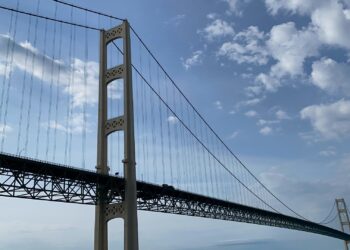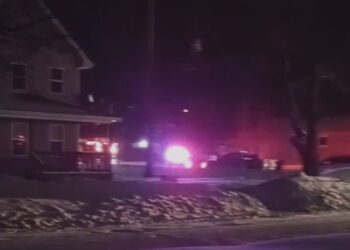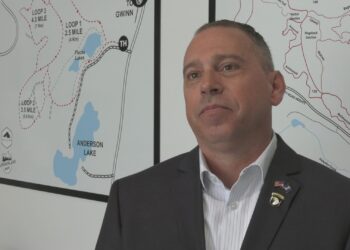LANSING, Mich. (WZMQ) – State Senators have issued resolutions in support and opposition of Federal Wilderness designation for over 51,000 acres of the Ottawa National Forest in the Upper Peninsula.
Sue Shink, Democratic senator from Ann Arbor, introduced a resolution to urge the United States Congress to designate the Ehlco area, the Trap Hills, the Norwich plains, and a 2,000-acre addition to the Sturgeon River Gorge wilderness in Michigan’s Upper Peninsula as federal wilderness. U.P. Senator Ed McBroom then issued his own resolution opposing the designation. He says this isn’t the first time these requests have been made, and that any follow-through from the federal government would make some big changes across the peninsula.
A wilderness, in contrast with those areas where man and his works dominate the landscape, is hereby recognized as an area where the earth and its community of life are untrammeled by man, where man himself is a visitor who does not remain. An area of wilderness is further defined to mean in this act an area of undeveloped federal land retaining its primeval character and influence, without permanent improvements or human habitation, which is protected and managed so as to preserve its natural conditions and which (1) generally appears to have been affected primarily by the forces of nature, with the imprint of man’s work substantially unnoticeable; (2) has outstanding opportunities for solitude or a primitive and unconfined type of recreation; (3) has at least five thousand acres of land or is of sufficient size as to make practicable its preservation and use in an unimpaired condition; and (4) may also contain ecological, geological, or other features of scientific, educational, scenic, or historical value.
A wilderness, in contrast with those areas where man and his works dominate the landscape, is hereby recognized as an area where the earth and its community of life are untrammeled by man, where man himself is a visitor who does not remain. An area of wilderness is further defined to mean in this act an area of undeveloped federal land retaining its primeval character and influence, without permanent improvements or human habitation, which is protected and managed so as to preserve its natural conditions and which (1) generally appears to have been affected primarily by the forces of nature, with the imprint of man’s work substantially unnoticeable; (2) has outstanding opportunities for solitude or a primitive and unconfined type of recreation; (3) has at least five thousand acres of land or is of sufficient size as to make practicable its preservation and use in an unimpaired condition; and (4) may also contain ecological, geological, or other features of scientific, educational, scenic, or historical value.
wilderness.Net/learn-about-wilderness/key-laws/wilderness-act/default
“You’d have non-motorized recreation and you’d be able to use the trails that are already there.” Senator McBroom said. “But there’d be no new trails and there’d be no more motorized usage.”
Following the Senator’s resolution, U.P. Representatives Dave Prestin and Greg Markkanen introduced similar resolutions to the House. The resolutions were made to oppose the designation of additional federal wilderness areas in Michigan’s Upper Peninsula and to urge the United States Congress to declare the entire city of Ann Arbor a wilderness area.
“A very wonderful and adept tongue-in-cheek move by my colleagues in the House,” McBroom said. “To point out just how frustrating it can be as a legislator to have somebody from 10 hours away not even consult with you before they decide what’s best for your area of the state.”
“It just doesn’t it doesn’t work for us in the U.P. Our timber harvesting standards and everything get put into jeopardy.” Representative Prestin said. “The wilderness designation comes with an incredibly onerous set of rules regarding the use of the land.”
Federally designated wilderness territory has its own set of regulations that have to be followed. With the designated areas no roads can be paved, businesses built, there can be no temporary roads, use of motor vehicles or equipment including boats and air crafts, and no structures can be built.
“By switching that designation of those lands from their current which is federal forest, to wilderness, we shift them from able to be managed and logged effectively for productive timber, able to be utilized by the public for activities that include using trails with motorized machinery, being able to even use bicycles to do hunting, and now also known as a wilderness,” McBroom said. “Most of those things would be eliminated including the hunting option, and building new trails would be off and certainly, we’d go to not managing the trees for productive forestry”
There shall be no commercial enterprise and no permanent road within any wilderness area designated by this act and except as necessary to meet minimum requirements for the administration of the area for the purpose of this act (including measures required in emergencies involving the health and safety of persons within the area), there shall be no temporary road, no use of motor vehicles, motorized equipment or motorboats, no landing of aircraft, no other form of mechanical transport, and no structure or installation within any such area.
wilderness.Net/learn-about-wilderness/key-laws/wilderness-act/default
Both lawmakers said this designation would disrupt outdoor recreation in the U.P., and any productive logging or maintenance of the forests.
“This is not a national park, they are national forests,” McBroom said. “We maintain them to maintain our reserves of a valuable natural resource and to just let it grow old and start tipping over and dying and burning is not responsible management.”
The Federal Forest designation comes with its own regulations, which the lawmakers have said is sufficient to maintain the beauty and biodiversity that already exists across the U.P. Senator McBroom says that both Michigan representatives on the federal level have said they would not support the designation of more wilderness land in the U.P., and that it’s unlikely anything will come of Senator Shink’s resolution, but still warned it would be detrimental to industries across the region.
We reached out to the Ottawa National Forest on this for comment. A spokesperson told us “The Ottawa National Forest has no position on the matter.”

